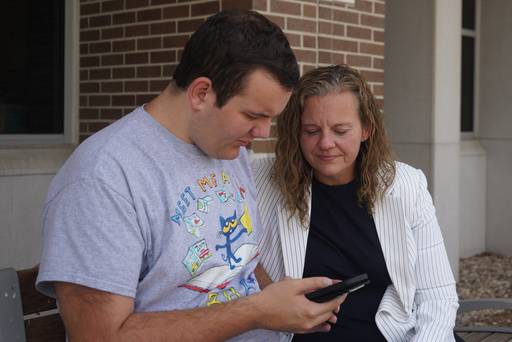Trump’s comments on autism stir hope, evoke anger

A Massachusetts man whose twin boys have profound autism found US President Donald Trump’s comments about the condition hopeful because it was the first time the highest leader of government discussed the developmental disability.
An Indiana woman with an autistic son however saw Trump was blaming mothers when he urged pregnant women to not take paracetamol, known as acetaminophen in the United States, Canada and Japan.
A Kentucky woman diagnosed with the condition as an adult thought Trump was villainizing autism by describing it as a “horrible, horrible crisis.”
Recent comments about autism by the Republican president and others in his administration are rippling through the United States, stirring up a wide range of views and feelings among people with autism and their families.
Renewed focus
Some welcome the renewed focus and pledges of research money for the complex developmental condition. Others are outraged by what they consider the blaming, shaming and spreading claims they believe as not grounded in science.
On Monday, Trump repeatedly warned pregnant women to not take Tylenol, a brand of acetaminophen.
The Associated Press (AP) said Trump made discredited and unfounded claims that taking paracetamol while pregnant causes autism.
But the AP also acknowledged that certain studies have raised the possibility that taking paracetamol in pregnancy might be associated with a risk of autism. Others have not found a connection and no causal link has been proved.
‘Correlation’
The US Food and Drug Administration (FDA) in a statement last Sept. 22 said, “Evidence in recent years has suggested a correlation between [paracetamol] use during pregnancy and subsequent diagnosis of conditions like autism and ADHD.”
It added that “Multiple large-scale cohort studies, including the Nurses’ Health Study II and the Boston Birth Cohort, find this association.”
The agency stressed that “some studies have described that the risk may be most pronounced when [paracetamol] is taken chronically throughout pregnancy.”
“Some studies have raised the possibility that taking [paracetamol] during pregnancy might increase the risk of autism—but many others haven’t found that concern, said autism expert David Mandell of the University of Pennsylvania.
One challenge is that it’s hard to disentangle the effects of Tylenol use from the effects of high fevers during pregnancy. Fevers, especially in the first trimester, can increase the risk for miscarriages, preterm birth and other problems, according to the Society for Maternal-Fetal Medicine.
Dr. Noa Sterling, a gynecologist, said Trump’s comments, particularly about Tylenol, touched a nerve for many parents of young children with autism.
Mothers feel slighted
While Trump didn’t blame women but only issued a strong warning, some mothers felt slighted.
“There’s this kind of narrative that you have to be careful of absolutely everything you do in pregnancy, and if you eat the wrong thing or do the wrong thing, you’re going to irreparably harm your baby,” she said. “So the Tylenol just plays directly into this fear that, ‘I’ve taken something that has caused this condition in my child.’”
Dani Derner, who has a 4-year-old autistic son, said it is “really disappointing” that women are being blamed.
“I personally did not take Tylenol during my pregnancy,” said Derner, of Dripping Springs, Texas. But, she said, “some women might not have a choice.”
‘A little scared’
“When I heard that he said [paracetamol] was the cause, I was a little scared and a little sad because as a mom of a child with autism, I felt like maybe I was being blamed for that,” said Rachel Deaton of Fishers, Indiana, who has a 22-year-old autistic son. “We really don’t know what causes autism.”
Others were encouraged by the attention on the developmental disorder.
“We need a voice at the table and we have to do something,” said Matt Murphy of Ayer, Massachusetts, who has twin 8-year-old boys with profound autism. “That’s the hopeful thing I take out of this—finally, the top level of government is talking about this.”
He said people with profound autism will need lifetime support, and federal and state governments will need to take action in many areas, including education and housing. Murphy is glad to see federal money going toward research into autism’s causes.
“Even if you find the cause … we still have the current population that we need to support and address and help,” he said.
Deaton, who has an adult autistic son, agrees, but worries about federal cuts affecting things such as Medicaid and special education. Those help autistic people contribute to society, get jobs and be taxpayers, she said.
Judith Ursitti leads the Profound Autism Alliance and was among a group of people who met with the director of the National Institutes of Health in June. She said hearing the term “profound autism” in a White House event was validating and she was pleased with the list of research being funded.

















